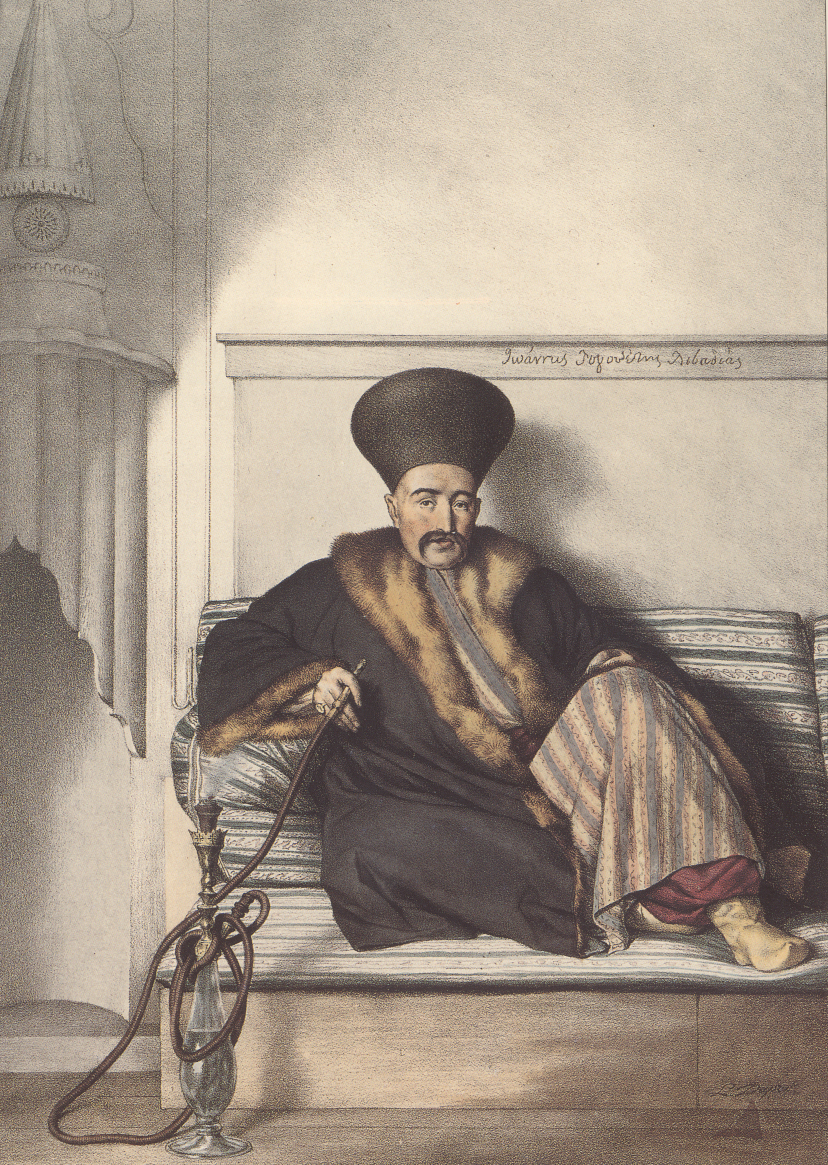kodjabashi on:
[Wikipedia]
[Google]
[Amazon]
 The kodjabashis ( el, κοτζαμπάσηδες, kotzabasides; singular κοτζάμπασης, ''kotzabasis''; sh, kodžobaša, kodžabaša; from tr, kocabaṣı, hocabaṣı) were local Christian notables in parts of the
The kodjabashis ( el, κοτζαμπάσηδες, kotzabasides; singular κοτζάμπασης, ''kotzabasis''; sh, kodžobaša, kodžabaša; from tr, kocabaṣı, hocabaṣı) were local Christian notables in parts of the
 The kodjabashis ( el, κοτζαμπάσηδες, kotzabasides; singular κοτζάμπασης, ''kotzabasis''; sh, kodžobaša, kodžabaša; from tr, kocabaṣı, hocabaṣı) were local Christian notables in parts of the
The kodjabashis ( el, κοτζαμπάσηδες, kotzabasides; singular κοτζάμπασης, ''kotzabasis''; sh, kodžobaša, kodžabaša; from tr, kocabaṣı, hocabaṣı) were local Christian notables in parts of the Ottoman Balkans
Rumelia ( ota, روم ايلى, Rum İli; tr, Rumeli; el, Ρωμυλία), etymologically "Land of the Romans", at the time meaning Eastern Orthodox Christians and more specifically Christians from the Byzantine rite, was the name of a hist ...
, most often referring to Ottoman Greece
Most of the areas which today are within modern Greece's borders were at some point in the past part of the Ottoman Empire. This period of Ottoman rule in Greece, lasting from the mid-15th century until the successful Greek War of Independence t ...
and especially the Peloponnese
The Peloponnese (), Peloponnesus (; el, Πελοπόννησος, Pelopónnēsos,(), or Morea is a peninsula and geographic regions of Greece, geographic region in southern Greece. It is connected to the central part of the country by the Isthmu ...
. They were also known in Greek as ''proestoi'' or ''prokritoi'' (προεστοί/πρόκριτοι, "primates") or ''demogerontes'' (δημογέροντες, "elders of the people"). In some places they were elected (such in the islands for example), but, especially in the Peloponnese, they soon became a hereditary oligarchy
Oligarchy (; ) is a conceptual form of power structure in which power rests with a small number of people. These people may or may not be distinguished by one or several characteristics, such as nobility, fame, wealth, education, or corporate, r ...
, who exercised considerable influence and held posts in the Ottoman administration.
The title was also present in Ottoman Serbia
Most of the territory of what is now the Republic of Serbia was part of the Ottoman Empire throughout the Early Modern period, especially Central Serbia and Southern Serbia, unlike Vojvodina which had passed to Habsburg rule starting from the ...
and Bosnia, where it was known as ''starešina'' ("elder, chief") instead of the official Turkish name. The terms '' chorbaji'' (from Turkish ''çorbacı'') and '' knez'' (a Slavic title) were also used for this type of primates, in Bulgaria and Serbia respectively.
The equivalent of the kodjabashis in Orthodox villages was the ''mukhtar
A mukhtar ( ar, مختار, mukhtār, chosen one; el, μουχτάρης) is a village chief in the Levant: "an old institution that goes back to the time of the Ottoman rule". According to Amir S. Cheshin, Bill Hutman and Avi Melamed, the muk ...
'' in Muslim villages, while mixed villages had both.
During the Greek War of Independence
The Greek War of Independence, also known as the Greek Revolution or the Greek Revolution of 1821, was a successful war of independence by Greek revolutionaries against the Ottoman Empire between 1821 and 1829. The Greeks were later assisted by ...
, the antagonism between the Peloponnesian kodjabashis, who sought to retain their previous preponderance and power, and the military leaders drawn from the klephts
Klephts (; Greek κλέφτης, ''kléftis'', pl. κλέφτες, ''kléftes'', which means "thieves" and perhaps originally meant just "brigand": "Other Greeks, taking to the mountains, became unofficial, self-appointed armatoles and were know ...
, was one of the main driving forces behind the outbreak of the Greek civil wars of 1824–1825
Greek may refer to:
Greece
Anything of, from, or related to Greece, a country in Southern Europe:
*Greeks, an ethnic group.
*Greek language, a branch of the Indo-European language family.
**Proto-Greek language, the assumed last common ancestor ...
, in which the "aristocratic" faction comprising the kodjabashis, the wealthy shipowners of Hydra and the Phanariotes
Phanariots, Phanariotes, or Fanariots ( el, Φαναριώτες, ro, Fanarioți, tr, Fenerliler) were members of prominent Greek families in Phanar (Φανάρι, modern ''Fener''), the chief Greek quarter of Constantinople where the Ecumeni ...
, prevailed.
See also
*Obor-knez
Obor-knez ( sr-Cyrl, обор-кнез) was a title borne by elected local native Serbian chiefs (Knyaz) of the ''nahiyah'' (district of a group of villages) in the Ottoman Sanjak of Smederevo (also known as the Pashalik of Belgrade). The obor-knez ...
*Rum Millet
Rūm millet (millet-i Rûm), or "''Roman nation''", was the name of the Eastern Orthodox Christian community in the Ottoman Empire. Despite being subordinated within the Ottoman political system, the community maintained a certain internal aut ...
References
Sources
* *{{cite book, last=Zakythenos, first=Dionysios A., author-link=Dionysios A. Zakythenos, title=The Making of Modern Greece: From Byzantium to Independence, url=https://books.google.com/books?id=zoKgAAAAMAAJ, year=1976, publisher=Rowman and Littlefield, isbn=978-0-87471-796-9 Oligarchy Ottoman Greece Government of the Ottoman Empire Turkish words and phrases Christians from the Ottoman Empire Ottoman titles Ottoman-era Greek primates